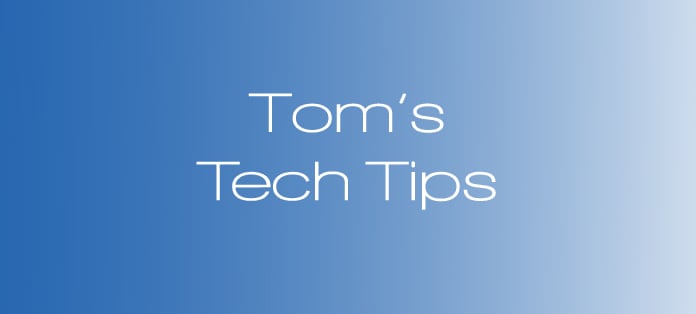I was working out the other day and, in order to drive the pain as far from my consciousness as possible, my trainer and I were discussing some issues he was having with his Apple® laptop. Now, I don’t know much about Macs® and I didn’t sleep in a Holiday Inn Express the night before but I was more than willing to give him some free tech advice (and forestall any more sets of lunges).
His issues were simple – he wondered if, when he was moving from gym to gym, he should put his laptop into sleep mode or to let it hibernate. Now, more than one Certified Legal Nurse Consultant has already asked me that very same question so my answer was a definitive “It depends.”
Sleep (Stand-by or Suspend) mode is what happens to most laptops when you shut the lid while they’re still running. They’re supposed to go into a lower-power state cutting off power to peripherals and some portions of the machine (screens, Wi-Fi® adaptors, mice, etc.). When you open the screen back up, the machine is supposed to power itself back up so you can immediately start working on that report for your favorite attorney that you left open. That’s the theory anyway.
I’ve snapped my laptop’s cover shut, dropped the laptop into my carry bag and later, when I pulled it out, just about dropped it on the floor because it was darn near overheated! Sometimes the hard drive won’t get the sleep command and it will chug away until either the battery runs down or the computer melts down. Sleep mode has never been entirely debugged, at least to my satisfaction. I’ve seen computers in sleep mode “wake up” and, like a New Orleans Saints fan after a big win, not (immediately) recognize its surroundings (printers, mice, Wi-Fi adaptor, scanner, etc.) requiring a reboot, sometimes with a potential loss of data (if you don’t know the keyboard shortcuts to save [Ctrl+s] your documents). The savvy CLNC® consultant would do well to avoid sleep (computer-wise).
Hibernate is a more evolved form of sleep (just ask a bear). Theoretically when a computer is told to hibernate it stores a copy of everything you have open including knowledge and status of attached peripherals (really everything in the RAM) to a file on the hard drive. It then shuts down. When you start it back up, it pulls the information from that file, restoring itself to the state it was in when it was sent to hibernate. Green legal nurse consultants love hibernation as a power-saving option. You can also set your laptop to do this automatically when it reaches a pre-determined battery-low level to help stave off data loss.
What does this mean to you and your legal nurse consulting business? I’d rather see you hibernate than sleep (computer-wise). Whichever mode you choose, make sure the machine keeps power throughout, as a loss of power could mean a loss of data. Today’s Macs and the newest versions of Windows® use a combination of sleep and hibernate to protect data when the machines are “put down for the night” and which are, in theory, more stable. You’ll have to test for yourself how well that works. My advice – make sure it’s really “out” before you drop it into your bag or walk away from it at night.
Tom









